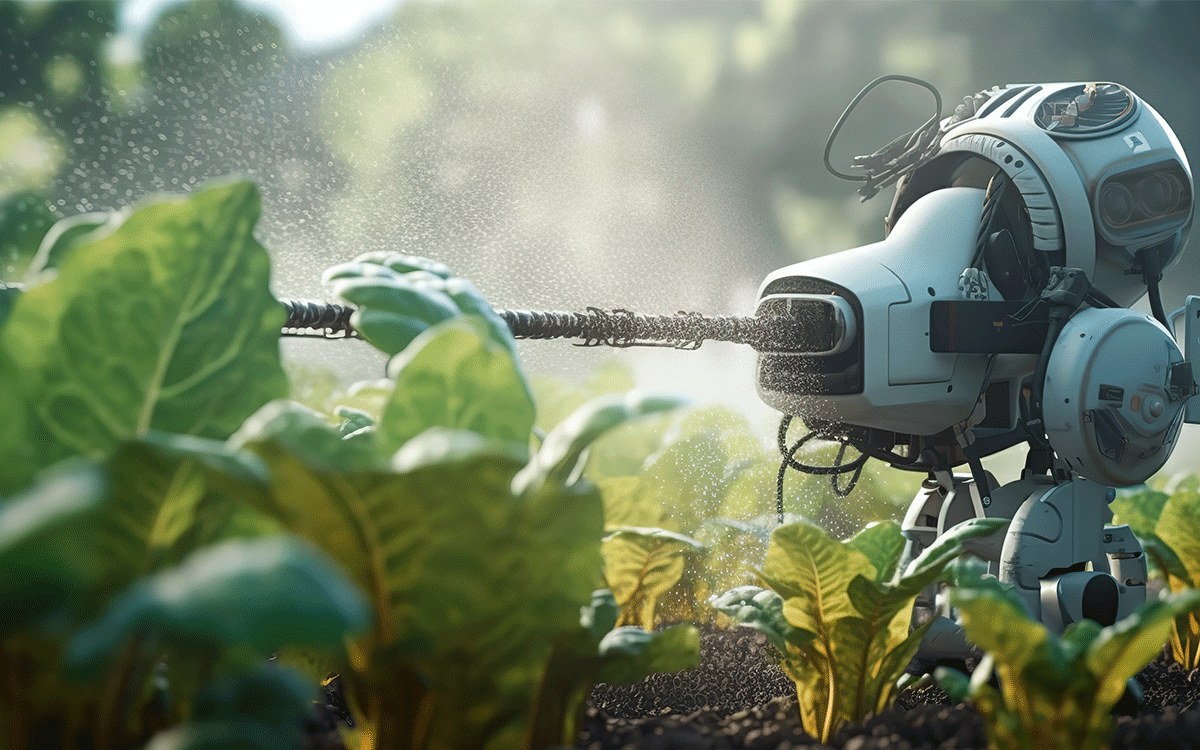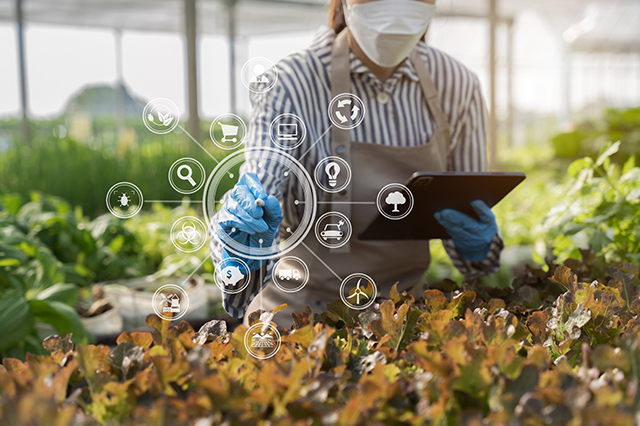
The Role of AI and Data Analytics in Modernizing Agriculture: Agritech Startups at the forefront

In recent years, the Indian agricultural landscape has undergone a remarkable transformation, solidifying its position as the world's second-largest food producer. While there has been a gradual incorporation of technological advancements, the traditional structures in farming and supply chains continue to exist. It has resulted in the neglect of critical quality parameters and staggering losses. Around 40 per cent of produce in India is wasted during transportation, primarily because of supply chain inefficiencies.
Moreover, the agricultural sector faces a huge gap in information access. On one hand, there is an overload of information about ongoing trends. On the other hand, the sector faces a lack of historical data on farming techniques and practices that can be used to ensure optimal production. This limits the farmers from unlocking the full potential of agricultural lands. Since the green revolution, the agricultural sector in India has been stagnant.
Over 30 per cent of agricultural land has degraded across India in the past few years. Additionally, crops have become increasingly resistant to chemical usage, with agricultural growth dwindling from 8.6 per cent in 2011 to a mere 0.8 per cent in 2016. With more than 1.5 billion mouths to feed by 2030, it is crucial to add efficiency to farming practices and supply chains. This can be achieved by integrating technology into the agricultural landscape.
Embracing Agtech Solutions
By integrating digital solutions across different points of a supply chain, Agtech offers a path towards a more sustainable and productive future. For instance, digitising farm records provides farmers with precise monitoring of agricultural practices. This data-driven approach driven by AI and ML technologies promotes precision agriculture, where farmers are recommended optimal practices to maximise yields. Farmers are advised about the best practices as per soil quality, weather conditions, etc., substantially reducing water usage and chemicals. While saving operational costs, it also minimises land degradation.
Over the last few years, innovative solutions have positively impacted the agricultural landscape. Technologies like drone-assisted crop monitoring, blockchain-based supply chain management, and AI-driven predictive analytics are revolutionising farming practices. By employing these new-age technologies, farmers and other stakeholders in the agricultural ecosystem can enhance operational efficiency, reduce wastage, ensure traceability, and elevate overall agricultural produce quality.
Additionally, digitalising the agricultural value chain using technologies like blockchain can simplify market access and enable the free flow of agricultural information. It includes better supply chain management, online marketplaces, transparent traceability, improving quality, pricing, and access to capital. This, in turn, will increase yields, reduce emissions, promote sustainability, and minimise food waste through precision farming. It also enhances farmers' profitability, minimises waste, and safeguards them from exploitation.
Enabling Precision Agriculture Through Data-Driven Decision-Making
Precision agriculture is a fundamental pillar of Agtech, and has increasingly gained prominence in India. Providing tech-driven tools equips farmers with a wealth of critical data, enabling them to make informed and data-driven decisions. This has the potential to reduce the input cost and increase yield. From soil health assessments to real-time crop monitoring, precision agriculture optimises resource allocation while enhancing agricultural productivity.
Enhancing Supply Chains To Improve Market Access And Equitable Pricing
Digital platforms are bringing about a revolution in market access, empowering farmers with direct linkages to markets. This transformation ensures equitable pricing for agricultural produce and eliminates the historical exploitation by intermediaries. Digital marketplaces have the potential to reduce post-harvest losses significantly. This is a notable impact, considering that more than 30-40 per cent of produce is lost during transportation and storage within India's traditional supply chains.
Facilitating Knowledge Dissemination
Knowledge about agricultural practices and new techniques is no longer limited to geographical boundaries. Digital channels facilitated by Agtech tools are facilitating equitable dissemination of agricultural knowledge. Online forums, webinars, and social media platforms have become powerful conduits for exchanging best agricultural practices. Nowadays, farmers have unprecedented access to global knowledge resources. This will potentially boost India's agricultural productivity over the next decade.
A Shift Towards A New Green Revolution And Gender-Inclusive Landscape
Within the agricultural landscape, there has been a gradual shift towards organic and sustainable farming practices. In FY22, the area under organic farming was more than 3.92 per cent, and this has been continually increasing yearly. Incorporating Agtech practices to monitor crops continually and adapt farming practices per the change in soil quality and weather conditions while using organic pest resistance can help achieve these global sustainability trends. Moreover, the tech-enabled agricultural practices are also bringing in the shift towards gender equality. More women are now participating in roles involving technologies like operating drones for crop monitoring.
Envisioning A Promising Future
With the ongoing development in Agritech, the future of Indian agriculture seems promising. Government investments are further catalysing innovation and growth, driving technological advancements, spurring research and development, and positioning India as a global leader in agricultural technology adoption. With this progress, agriculture will potentially increase the country’s annual GDP.
As we navigate this transformative phase of agriculture, it’s crucial to prioritise sustainable and equitable growth. The digital revolution in agriculture is not merely an option; it is a necessity. It is incumbent upon all stakeholders – farmers, entrepreneurs, policymakers, and technology enthusiasts – to embrace this change and move toward a more prosperous, sustainable, and digitally empowered agricultural sector in India.
Dhanashree Mandhani, founder and CEO of Salam Kisan